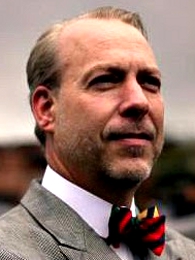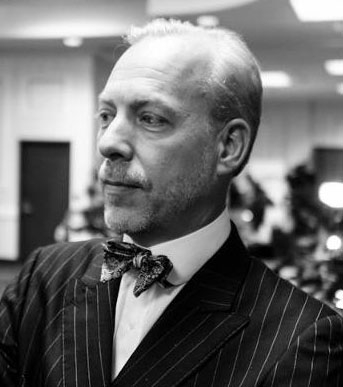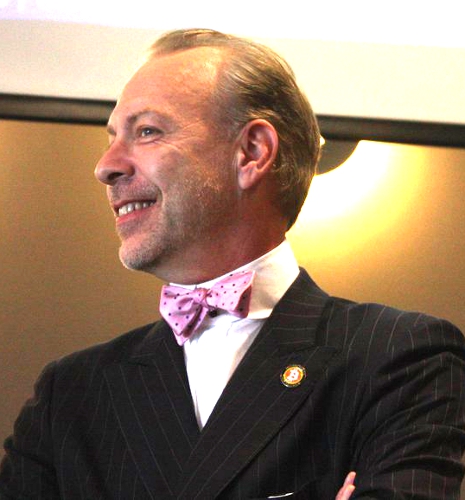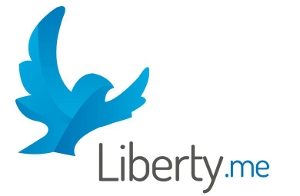- What Is The Mises Institute And Why Is It Important?
- Why Does Jeffrey Tucker Celebrate Walmart?
- What Is The Basis Of Conflict In The Economic System?
Full Interview Audio

Personal Info
Hobbies and Interests:Music, musical criticism, gregorian chant, baking bread, technology
Favourite Books:
- Woman of No Importance by Oscar Wilde
- The Picture of Dorian Gray by Oscar Wilde
- Antifragile: Things That Gain from Disorder by Nassim Nicholas Taleb
- Memoirs Of A Superfluous Man by Albert Jay Nock
Most Influenced By: Murray Rothbart, Albert Jay Nock
Twitter: http://twitter.com/jeffreyatucker
Facebook: http://facebook.com/jeffreytucker.official
Personal Blog: http://lfb.org/blog
Company Website: http://liberty.me
Interview Highlights
This is a condensed, lightly edited transcript of an audio interview. The full audio is available and highly recommended. The interviewee may post clarifications in the comments.
Adrian Bye: Today I’m here with Jeffrey Tucker who is CEO of Liberty.me and in the process of launching a startup. He’s been associated with the Mises Institute and runs Laissez Faire Books. Jeffrey, thanks for joining us.
Jeffrey Tucker: It’s really fun to be here.
Adrian Bye: Jeffrey, can you tell us a little bit about who you are and where you come from?
Jeffrey Tucker: Originally, I’m from southwest Texas, where my family has been since about 1832. I’d studied music up to high school, and then into college, and fell in love with economics. It’s kind of another form of music. It’s a discipline that seeks to understand where wealth comes from, why society exists the way it does, whether civilization is rising or falling, whether it’s prosperous or not. I just fell in love with economic as a science, and the more I looked into it the more it seemed very clear to me how human liberty is the key to making the social model work. I’ve spent the rest of my adult life exploring this topic and finding ways to get the word out there about a topic that I think is underrepresented generally in academia and in media.
Adrian Bye: What brought you to Alabama?
Jeffrey Tucker: I came here initially to work for the Mises Institute where I spent a good many years building the website, which was an exciting thing. I remember the first time I discovered the power of the web. I thought, wow, I can take this physical think called a book or an essay on this piece of paper I have, scan it, put it on this little digital thing and it becomes universally acceptable, malleable, and practically immortal. That is a dramatic transformation from something being bound in the physical world. I just fell in love with the idea that I can do this. It was from 1996, 1997 that I thought we had a magic tool here. So I threw myself into the technology and building that world and the chance of putting thousands and thousands of texts online, along with lots of commentary. I built one of the earliest online academies, a specialized wiki page, online communities, and all these sorts of things. I’ve always been intrigued by the prospect of escaping the constraints of the physical world. And that’s what the digital world has allowed us to do.
Adrian Bye: I think that Ayn Rand has saved the world economy.
Since I left the Mises Institute, I founded or refounded Laissez Faire Books, a kind of subscription model, where you subscribe and can download unlimited numbers of books. Now it’s doing very well, so I’m adding to that a startup of my own, called Liberty.me, which is a complete social and publishing solution for this sort of liberty-minded space which is growing internationally. We really need our own little digital civilization. So I’m throwing everything I know at this.
Adrian Bye: I went to university and I was convinced to become a democrat, so I became a democrat for twenty years or so, and then earlier this year I realized that I’m actually a libertarian. I am curious as to what was your process in becoming a libertarian.

Jeffrey Tucker: There are usually little issues that attract people ideologically. Most of them have something to do with the longing for human liberty. I’m convinced that’s the reason why people become hardcore leftists, for example. They believe there is some sort of wicked war machine that needs to be unplugged, or that there is a corporate cartelist system that’s changing the social order in its favor. Or people become rightists because they are convinced the government is too big, is taking too much of our money, and is doing belligerent and nasty things to people. I think both sides are right. People are driven to these ideological corners because their senses have perceived injustice. The reason I became a libertarian anarchist is because I think that this worldview addressed all the injustices all around us and provides a really good understanding for the right way out. My own intellectual trajectory began probably in high school. I read some Ayn Rand, and she really had a way of summing up the drama of capitalism in a fabulous way and crystallizing the human liberty project in a way that very few others have managed to do.
Adrian Bye: I think that Ayn Rand has saved the world economy.
Jeffrey Tucker: She is a very special figure in the history of literature. I loved the way she personalized the project of liberty. Her characters are never victims of the state, they always stand up and say, look, I have human rights, I’m a creator and I can’t let anything stop me. That’s a beautiful attitude. I think libertarians could actually learn a lot from that rather than constantly going to the government and saying: please recognize my rights, please start acknowledging that I am a free person. I think in some ways Rand continues to be the great fuel behind the liberty-minded impulse. There is a time in people’s lives when they first encounter Rand and read something like Atlas Shrugged or Fountainhead. They put down the book and go, damned, I am going to be different. I’m not going to be a victim of anybody, I’m not going to be a put-upon, and I’m not going to be pushed around by any would-be despot. I am going to live a free, independent and happy life. And that’s an amazing thing to happen to a person. That’s a real new revelation that tends to stick with you for ever.
Adrian Bye: How long have you been a libertarian?
Jeffrey Tucker: I mentioned my early experience with Rand. It gave me a nice sense of motivation but not a clear ideological coherence. In college I became something like an archetype of a right wing conservative. Then I discovered that that paradigm is inconsistent and doesn’t explain the world around me. I lost all interest in politics as a method for managing the social order and embraced anarchism as a worldview. That was for me a great liberation. Once you give up this idea that the state really can make any real contribution to our lives, there is kind of an intellectual and mental freeing that takes place. You begin to see beautiful order, lovely things all around you that extend out of human action and human choice rather than being imposed from the top. To me, to be an anarchist is to have a really hopeful outlook on the prospect for humanity’s capability of organizing itself without being imposed upon by central elites, that are either appointed or elected. And that is an exciting thing to discover.
Adrian Bye: Which is what the internet gives us, too. A question about the libertarian community. What percentage of libertarians would you say are lean libertarian left versus libertarian right? There does seem to be that sort of distinction there. I’m wondering is there a 80/20 sort of split?

Jeffrey Tucker: Maybe it’s more like 70/30. It’s not as if the libertarian left opposes private property, for example. It’s just that they have their own kind of issues that they tend to focus on. The left doesn’t like the corporate employment structure, they think it’s mostly artificial. They would tend to be more sympathetic to labor over capitalism if there was a dispute between the two. They are probably more interested in issues of institutionalized racism and sexism, and things like that. I’m not sure there is some serious substance of disagreement between the libertarian left and right. I think it’s really a matter of styling and messaging. One of my best friends is Charles Johnson who is probably the most left of the left of the libertarian left. We meet every week in a little group we call ‘The Anarchist Meetup’. I argue with the right because I tend to be very pro-corporate. I love McDonalds, I think Walmart is heroic, I celebrate corporate capitalism and rich people, so I have all these impulses. He tends to think of Walmart as just a kind of privileged industrial cartel, and McDonalds as benefiting from massive food subsidies and just an extension of a patent protected corporate racket. We argue all the time, but both of us grant that there is truth to what each of us is saying.
Adrian Bye: Tell me about the Mises Institute. Can you explain a little bit what’s been going on there?
Jeffrey Tucker: The Mises Institute began in 1982, long before the internet. It was trying to address a dearth of information that was out there about this great economist that lived from 1881 to 1973, and taught in Austria, in Geneva and then in New York. I fell in love with the Mises Institute because it was dedicated to advancing science and liberty in the tradition of Mises. We were all about publishing in the scholarly and in the popular space in that tradition. I was good friends with Murray Rothbard, who was kind of an economic adviser until he died in 1995. I met him in 1985. He and I hung out a lot together, and he had a huge influence over me. It was a real privilege for me to work there. I finally felt like my job was done there and wanted to take on a new project in the commercial space.
Adrian Bye: Maybe we can talk a little bit about economics. It seems to me that there is almost like a left and right dispute in economics at some level, where the right says: let capitalism run its course, try not to interfere with it; it will go up and down, and it will be bumpy every so often, but it’ll be fine just so leave it alone. And we have the left, or the Keynesian economics, which is essentially saying: no we need the workers to go first and when the workers are okay, that will stimulate capitalism. Is that accurate, or can you explain that?
Jeffrey Tucker: I’d say the main dispute comes down to those who believe that the price system is sort of self-stabilizing and those who think it needs to be prodded this way and that in order to achieve something like an equilibrium or perfect competition. This plays itself out in many ways. In 2008, when the world seemed to be falling apart, basically you have the Austrians saying: that’s what you get when you use the Central Bank to stimulate an artificial boom. Everything gets distorted and out of control. And it’s going to fix itself, and the way to address it is to let liquidation happen even if that means that some investment banks have to go under. Any attempt to fix it is gonna cause more damage. The other point of view, or the general Keynesian point of view is: no, the system fell apart not because of an artificial boom, but because it’s inherently unstable. That is proof that we need government involved, aggregate demand, kicking the economy forward by creating trillions of dollars, subsidizing certain kinds of businesses that are under pressure, and basically hammering the economy so that we can experience prosperity again. So that’s the outlook. I don’t think it worked. They promised that we would be back to normal levels years ago, and it still isn’t. The banking system is really unstable and essentially broken. There are plenty of things wrong with the US economy. Our growth rates are absolutely pathetic. We’ve tried the Keynesian way, and it just hasn’t worked.
Adrian Bye: It kind of makes you wanna have been alive during times like the Wild West, when things were just getting started and they didn’t have all this government getting in the way of everything.
Jeffrey Tucker: That’s right. And that’s sort of what the internet is, and that is why most modern entrepreneurs are exploring this great new real estate called the cloud. It’s a space for freedom. It allows us to exercise our creativity, makes the world new again. The physical world has been mostly ruined by taxing it and regulating it. There is no product that isn’t highly regulated by the central government and taxed. And that made a real mess of the world. But in the internet we are seeing real creativity take place, and in amazing ways. We are seeing innovations that are potentially earth-shattering, and I would list bitcoin as an example of that. We have actually seen innovation in the monetary sphere as well, it’s remarkable.
Adrian Bye: We haven’t talked about your startup. If you can tell us a little bit about it. I know that it hasn’t launched yet.

Jeffrey Tucker: I always thought that whatever is great about the physical world could be reproduced and improved in the digital world. And one of the things that’s great in the libertarian world is hanging out with libertarians. Liberty on the Rocks, there are great conferences, there is FreedomFest. What if you could extend that 24/7, 365 days a year, to an online piece of real estate that provides complete free chat, social networking plus a publishing platform. And it’s all focused on praxis, not so much on theorizing but on ways to achieve liberty without having to ask for government to give it to you. So I wrapped all that up in a package, showed it to some investors who said, that sounds fantastic. Nothing like that exists, lets go for it. I’m hoping to create a happy world of play and surprise and joy and creativity for people who are really interested in freedom right now in our times.
Adrian Bye: Is there anything we haven’t talked about that you would like to cover?
Jeffrey Tucker: Let me just say this as a way of closing. The big problem I see in the libertarian world is there is just too much despair. And the reason for that is that people began to realize that the government is a terrible thing, it’s their enemy, it ruins everything it touches, and it’s just kind of depressing. And if that’s all you focus on, then you can lose interest. So I’m trying to redirect the attention of the liberty-minded community not away from the state, but toward the beauty of private enterprise and human action to remake the world and to a more hopeful outlook. And I encourage libertarians to do startup businesses and to find ways to make the world a better place using the liberties they have to create more for themselves. I think that’s a better way to approach human liberty and it prevents burnout and keeps people involved and excited. And I think that’s a better path than politics, a more productive use of our time.
Adrian Bye: That’s a good thought. Okay. Jeffrey, thank you very much for doing the interview, that’s been great.
Jeffrey Tucker: It has been fun. Thank you so much for having me.










